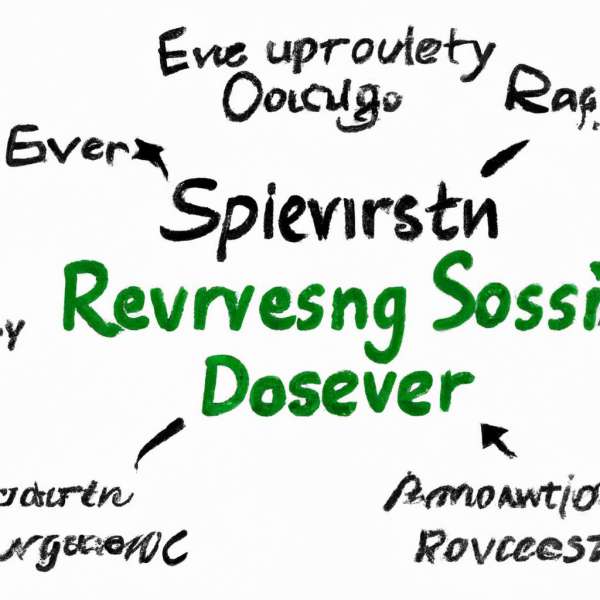Understanding Sexual Assault Claims: A Complex Mosaic of Experience and Law
In a world where narratives often clash and truths can be tangled in a web of emotion and legal intricacies, the discussion surrounding sexual assault claims emerges as both critical and challenging. These claims, deeply personal and profoundly impactful, form a complex mosaic of human experience, intersecting with issues of consent, power dynamics, and societal norms. As we delve into the multifaceted landscape of sexual assault claims, it is essential to approach the subject with empathy and clarity. This article aims to unravel some of the confusion surrounding sexual assault claims, examining the emotional, legal, and societal dimensions that influence how they are reported, perceived, and adjudicated. By fostering a deeper understanding, we hope to illuminate the path towards justice and healing for survivors while encouraging informed discourse around this vital topic.
Exploring the Complexities of Sexual Assault Claims
The landscape surrounding sexual assault claims is multifaceted and often fraught with emotional, legal, and societal implications. Victims frequently face a myriad of challenges when navigating their experiences and seeking justice. This journey can be influenced by factors such as **cultural stigma**, **lack of support systems**, and **fear of retribution**. Moreover, societal perceptions of victims and offenders can further complicate the processes involved in reporting incidents and pursuing formal complaints.
One of the key complexities arises from the different types of sexual assault claims, which can be categorized as:
- Criminal Claims – Involving law enforcement, these claims can lead to formal charges and potential incarceration of the perpetrator.
- Civil Claims – Victims may seek monetary compensation through lawsuits against the offenders or responsible entities.
- Institutional Claims – Involving schools, workplaces, or other organizations, where the focus is on accountability and policy changes.
Additionally, the legal standard of proof can vary significantly depending on whether a case is pursued criminally or civilly. Criminal cases often require that the evidence proves guilt “beyond a reasonable doubt,” while civil cases might only need to establish liability “preponderance of the evidence.” The table below illustrates these differences:
| Type of Claim | Burden of Proof | Potential Outcomes |
|---|---|---|
| Criminal | Beyond a reasonable doubt | Imprisonment, fines, probation |
| Civil | Preponderance of the evidence | Monetary damages, injunctions |
| Institutional | Varies by policy | Policy changes, disciplinary actions |
This dichotomy often leads to confusion and frustration among victims, many of whom may feel the impulse to take action but are uncertain about which route to pursue. The societal discourse surrounding these claims further complicates the issue, as myths and misconceptions can contribute to victim-blaming attitudes and disbelief. It is essential to advocate for a supportive environment that empowers survivors to come forward, while also educating the public on the complexities involved in sexual assault claims.

Legal Frameworks and the Path to Justice
The legal landscape surrounding sexual assault claims is intricate and varies significantly across different jurisdictions. Fundamental to understanding these frameworks is an awareness of the various laws that govern the reporting, prosecution, and adjudication of such claims. Four primary legislative elements typically influence the path to justice:
- Statutes of Limitations: These laws set a specific time frame within which a victim can file a claim, ultimately impacting their ability to seek justice.
- Evidence Standards: The legal process involves different standards for admissible evidence, which can influence the outcome of a case.
- Victims’ Rights Legislation: Many jurisdictions have established laws that ensure victims are treated with respect and dignity throughout the legal process.
- Criminal vs. Civil Claims: Understanding the differences between these two paths is crucial, as they offer varying avenues for redress.
Various support systems exist to assist survivors in navigating these legal frameworks. These systems include:
| Support System | Purpose |
|---|---|
| Hotlines | Provide immediate assistance and counseling to victims. |
| Legal Aid Services | Offer legal representation and advice to individuals who cannot afford an attorney. |
| Therapeutic Support | Facilitate mental health services to help survivors cope with trauma. |
| Advocacy Groups | Educate victims about their rights and guide them through the legal process. |
Navigating the complexities of sexual assault claims requires seeking clarity within these frameworks. By understanding the foundation of laws and support systems, victims can engage more confidently with the justice system. This knowledge is essential not just for the pursuit of justice, but also for empowering survivors to reclaim agency over their narratives.

The Role of Support Systems in Recovery
When navigating the complex and often painful journey of recovery from sexual assault, the presence of a strong support system can make a world of difference. These support systems can come in many forms, each contributing uniquely to the healing process. From friends and family to professional counselors and advocacy groups, a robust support network provides essential emotional and practical assistance.
**Emotional support** is one of the most vital components of recovery. Friends and family members can offer a safe space to express feelings, fears, or frustrations. This connection reduces feelings of isolation and helps survivors rebuild a sense of trust and safety in relationships. Additionally, **peer support groups** can foster understanding and camaraderie with others who have had similar experiences, allowing survivors to share their stories and coping strategies in a judgment-free environment.
The role of **professional support** cannot be understated. Trained counselors and therapists can provide tailored strategies to address trauma, teaching survivors coping skills and fostering resilience. Advocacy groups often not only offer emotional support but also assist in navigating legal and medical systems, ensuring survivors understand their rights and available resources. These multi-faceted approaches help survivors regain control over their lives and make informed decisions regarding their recovery journey.
To highlight the different types of support systems available, consider the following table:
| Type of Support | Description |
|---|---|
| Family and Friends | Provide emotional comfort and unconditional support. |
| Peer Support Groups | Share experiences and coping methods in a safe space. |
| Professional Counselors | Offer specialized therapeutic techniques for healing. |
| Advocacy Organizations | Assist with legal and medical navigation, promoting empowerment. |
effective recovery from sexual assault is often a holistic process involving various forms of support. Fostering these connections not only sustains individual healing but also cultivates a compassionate community that validates and amplifies survivors’ voices. Each thread woven into the support system contributes to a stronger fabric of recovery, illustrating the profound impact of connection and understanding in the aftermath of trauma.

Navigating the Emotional Landscape After an Assault
Experiencing an assault can leave a profound impact on an individual’s emotional state, often resulting in a complex web of feelings that may be difficult to navigate. It’s common to feel a mixture of **fear**, **shame**, **anger**, and **confusion**. Recognizing these emotions is the first step toward healing. Understanding that these feelings are a normal response to trauma can help individuals start to unravel their emotional landscape.
Engaging with supportive communities and professional resources can be vital in this journey. Here are some avenues to explore:
- Therapy: Meeting with a trained therapist can provide a safe space to process emotions and develop coping strategies.
- Support Groups: Connecting with others who have had similar experiences can foster a sense of community and understanding.
- Journaling: Writing down feelings can serve as a powerful tool for self-reflection and emotional expression.
Understanding the stages of emotional healing can offer a roadmap, although each individual’s path is unique. The following table outlines common emotional stages that may be experienced:
| Stage | Description |
|---|---|
| Shock | An initial state of disbelief and numbness. |
| Denial | Difficulty accepting the reality of the event. |
| Anger | Feelings of rage towards the perpetrator or even oneself. |
| Acceptance | Coming to terms with the event and its consequences. |
While these emotional responses can feel overwhelming, it’s crucial to remember that healing is a dynamic process. Self-compassion and patience are key; it’s okay to seek out help and resources that resonate with you. Gradually, as layers of emotional turmoil are peeled back, individuals may find strength and resilience, leading to a more empowered sense of self moving forward.
The Conclusion
As we draw the curtains on our exploration of sexual assault claims, it becomes clear that the path to understanding this complex and sensitive issue is paved with empathy, awareness, and a commitment to justice. Each claim is not just a statistic or a headline; it represents a personal story—a profound journey of courage, struggle, and resilience.
In navigating the intricacies of the legal landscape, societal perceptions, and the emotional toll on survivors, we unearth the necessity for informed discourse and compassionate support systems. The conversation surrounding sexual assault is ongoing, and it thrives on our collective engagement.
Let us foster an environment where voices are heard and validated, where accountability is not an option but a standard, and where healing can flourish in the light of understanding. By continuing to educate ourselves and others, we contribute to a future that champions respect, dignity, and safety for all. In this way, we can transform not only the narrative of sexual assault claims but also the culture surrounding them—one informed discussion at a time.

